Positive Psychology Posts on Crowch
In today’s world, “being connected” has become the norm. Always reachable. Quick to reply. Always responsive. Checking messages even while resting. Checking email at night. Staying informed, staying involved, staying switched on.
But we’re not machines. We don’t have unlimited energy. And the constant availability we often confuse with politeness, professionalism, or responsibility — is in fact a major source of stress, anxiety, and emotional fatigue. Because you can’t truly recover when you’re always ready to respond.
Anti-stress isn’t just massages or breathing exercises. Sometimes, real anti-stress means disconnecting on a habitual level.Turning off notifications.Not answering right away.Not picking up the phone.Letting yourself be unavailable.
That’s not rude. That’s a boundary.It’s not “running away from life.” It’s reclaiming your own life.The freedom to breathe without the constant expectation that someone, somewhere, will “need” you.
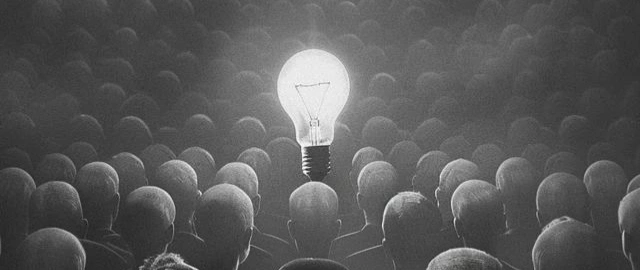
Your nervous system can’t reset if your brain is always in “standby mode.” Even when nothing’s happening, your body stays on edge — because it’s expecting something to happen. This constant readiness becomes invisible stress.
If you find yourself feeling more irritable, drained by conversations, craving silence but unable to get it — maybe what you really need is to be unavailable for a while.
Here are a few gentle practices that help:
– Mute your phone for just one hour a day– Remove messaging apps from your home screen– Set specific times for checking and replying– Separate “being online” from “being available” — they’re not the same– Tell loved ones: “I’m taking quiet time. Message me — I’ll answer later.”– Create no-screen zones: mornings, dinner, one hour before bed
Anti-stress doesn’t mean isolation. It means creating inner space — where you’re not reacting, not performing, not distracted. A space where your system can breathe. A space where you’re not required to “respond.” Where you’re allowed to just be.

You don’t have to be always on.You don’t have to be endlessly accessible.Having boundaries isn’t a weakness. It’s maturity.And being unavailable — is also a form of love.A way to say: the world can wait.Right now, I choose to be with myself.
Sometimes, anti-stress isn’t about “fighting stress,” doing breathing exercises, or using willpower. Sometimes, anti-stress simply means stopping the act of coping.Stopping the performance when everything inside is falling apart.Stopping the pushing when there’s nothing left to give.Stopping the inner voice that keeps saying, “Just a little more, hold on.”
Modern people are trained to cope. It’s a habit: keep the pace, stay functional, don’t show weakness. We get used to overload and start calling it “normal.”Tired? “Everyone is.”Don’t want to get out of bed? “Pull yourself together.”No joy? “At least things are under control.”At some point, the body stops believing we’re listening. It sends signals: insomnia, apathy, tears, irritability, exhaustion that rest doesn’t fix.That’s not weakness. That’s the body saying: “Enough.”
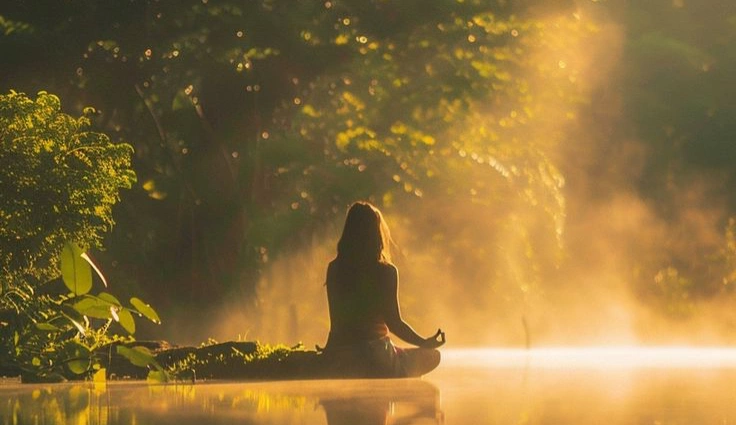
Anti-stress isn’t about “productive rest.” It’s not about “taking a massage” just to become efficient again. It’s not distraction.It’s about coming back to yourself.Slowing down enough to ask the quiet questions:
– Where am I hurting but staying silent?– What do I really feel when I’m alone?– What am I avoiding by staying busy?– What do I need that I won’t allow myself?
Anti-stress is about honesty. Not public honesty — internal.It’s looking at yourself without filters.And not trying to fix — just being willing to see.
Sometimes what we need first is not a solution, but a recognition.Saying: Yes, I’m tired. Yes, it’s hard. Yes, I’m not okay.And that doesn’t make you weak — it makes you real.And from that point, the return begins.Not to performance.But to your actual self.

What helps?
– An honest conversation — even if it’s just with yourself– Turning off your phone for the evening– Allowing rest without needing to “earn it”– Warm light, soft music, a scent that feels like “home”– Simple body signals: a slow exhale, a gentle stretch, one kind touch– A soft “no” where your body is already saying “enough”
Anti-stress isn’t a task — it’s a state.It doesn’t mean “everything is fine.”It means: I’ve stopped fighting myself.
And often, in that very moment — when you stop demanding strength —strength returns.Quietly.Gently.Not as a push. But as breath.As stillness.As the simple truth: I exist.And that is enough.
We live in a world where speed has become the norm. Think fast, reply fast, work fast, even relax fast. Meditation is scheduled, silence comes through an app. We’ve learned to be efficient, multitasking, organized. But somewhere along the way, we’ve forgotten how to be truly alive — slow, present, feeling.
Stress isn’t always a sharp burst. It becomes a background noise — a steady hum of tension. We don’t even notice that we’re constantly “on”: ready to answer a message, take a call, jump to the next task. Even rest becomes a checkbox: “I need to recover,” “I should go to yoga,” “I have to disconnect.”But the key word here is “should.” Where is “want”? Where is “enough”? Where is “this feels right”?
Anti-stress isn’t a magic technique. It’s the skill of slowing down in a world that demands speed. It’s choosing to step off the track, even for an hour. Not to fall behind — but to return to your own rhythm. A rhythm where you don’t just get things done — you actually feel yourself doing them.
Sometimes, anti-stress isn’t meditation or yoga. It’s:
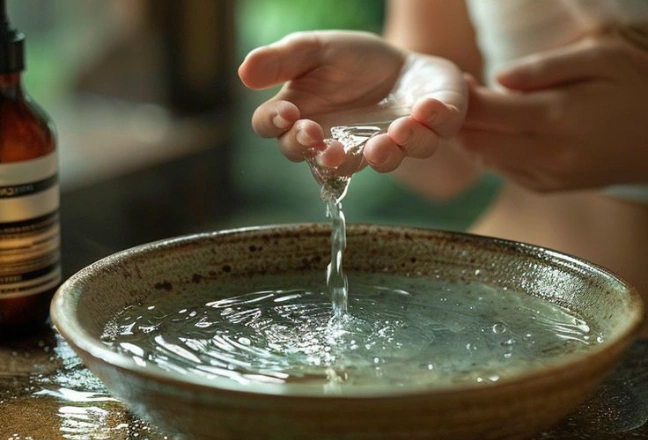
– Washing the dishes in silence– Turning off notifications– Not answering a message right away– Going to bed earlier– Breathing more deeply– Saying no to yet another course– Doing nothing for 10 minutes — and not calling it procrastination
These are radically simple things. But in a culture of constant productivity, they take courage. Because slowness is the new strength. When you’re not chasing everything — you’re choosing what matters. When you’re not hiding in busyness — you’re meeting yourself. When you allow yourself to be here and now — not rushed, not driven, not timed.
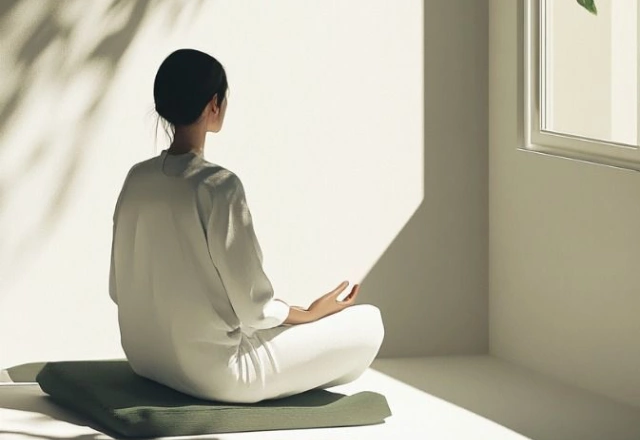
Anti-stress isn’t the absence of pressure — it’s inner stability in the face of it. It’s not cutting yourself off from the world — it’s not losing yourself in its pace. It’s asking, honestly: “Am I okay right now?” And if the answer is no — taking some small step toward feeling just a little better.
You don’t have to do it all. You don’t have to be productive, available, and “in shape” every minute. But you can learn to simply be with yourself. Not in the future, not in achievements, but right here. In a pause. In a breath. In a warm cup of tea. In your own quiet pace.
Because real life isn’t measured by how much you accomplish — but by how you feel while living it.And if you choose anti-stress — let it be not an emergency rescue, but a way of being.Not faster.But truer.
You can’t completely avoid stress — it’s part of life. We face it every day: in the news, at work, in conversations, even in our own thoughts. But the goal isn’t to avoid stress at all costs. True anti-stress is not about running away — it’s about learning to slow down when everything else speeds up.
Resilience doesn’t mean “I don’t care.” It means I know how to come back to myself. It’s not cold detachment — it’s a warm, gentle way of supporting yourself. We can’t control everything around us, but we can create a space within ourselves where we feel safe.
Anti-stress isn’t a luxury retreat or a trip to the mountains. It’s made of simple things that actually work — when practiced regularly. Not just when we’re already overwhelmed, but as prevention. As care. As a reminder: “I matter.”
Here’s what truly helps:
– Breathing. Slow, conscious exhales that are longer than the inhale. A simple yet powerful way to signal your nervous system: it’s okay to relax now.– Body awareness. Movement not for performance, but for connection. A walk, a stretch, a dance, a warm shower — anything that brings you back from your mind into your body.– Stillness. A few minutes with no screen, no tasks, no expectations. Just being. Giving yourself permission to pause.– Grounding. Tuning into the present moment: feeling your feet on the floor, noticing sounds around you, holding something warm and real.– Naming. Writing down what’s bothering you. Asking, “What am I feeling right now? What do I truly need?”– Simple pleasures. Music, scents, tea, touch, a cozy blanket, warm lighting, a nearby plant. These aren’t small things. They’re anchors — reminders that life is not just about “doing,” but also about “feeling.”

Real anti-stress doesn’t start with pills or vacations. It starts with the permission to be human — to be vulnerable, imperfect, real. It begins the moment you stop pushing yourself and start gently supporting yourself instead.

And most importantly — don’t wait until everything falls apart to begin caring for yourself. Prevention is more powerful than emergency repair. Even 10 minutes of silence a day can shift your inner state. Even one deep breath is a choice in favor of yourself.
мWe can’t remove stress from life. But we can create a counterbalance within — a space where there is no pressure, no rush, no judgment. Just presence. Just care. A space where you are welcome — just as you are.
Sometimes stress doesn’t feel like an explosion. It feels like background noise that never stops. On the surface, you’re doing fine — tasks get done, meetings happen, life goes on — but inside, you’re tense. Like you’re constantly clenching your fists, not with your hands, but with your nervous system. It’s hard to explain, but many know the feeling: anxiety without a reason, tiredness that sleep doesn’t fix, irritation over nothing, the deep urge to disconnect from everything — even for just an hour.
We often see stress as an enemy to fight off. But in truth, stress is a natural response to overload. It’s not weakness — it’s a signal: “This is too much. I’m not recovering fast enough.” If we ignore that signal, the body starts to “scream” — through pain, insomnia, apathy, or burnout.
The goal is not to be made of steel. The goal is to notice your limits. Where is it becoming too much? Where are you acting from tension, not from interest? Where are you saying “yes” when every part of you wants to say “no”? The ability to hear yourself in time isn’t a luxury — it’s a skill that protects your energy, health, and emotional balance.
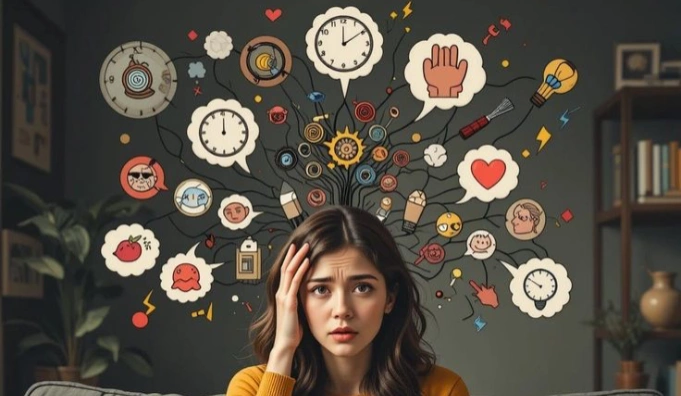
Sometimes all it takes is something small: stepping outside for a phone-free walk. Setting a 10-minute timer for silence. Writing down everything that’s buzzing in your head. Saying to someone close: “I need space — I’m overloaded.” It won’t solve everything, but it’s a pause that gives your body a chance to breathe.
And above all, in stressful times, be gentle with yourself. Stop demanding productivity when you’re running on empty. Stop comparing yourself to others who seem to have it “together.” Stop expecting yourself to be strong every second. Because strength isn’t always movement. Sometimes, strength is choosing to stop. To say, “I’m tired — and that’s okay.”

We can’t remove stress from life completely. But we can change how we respond to it. Not through resistance, but through awareness. Not by ignoring it, but by meeting it with care. And then, stress stops being the enemy — it becomes a turning point. A reminder: you are alive, you are feeling, and even when it’s too loud inside — you still have the power to choose yourself.
“More. Faster. Better.”That’s the mantra of modern life. We’ve been taught that our value is measured by how much we accomplish — how productive we are, how many goals we hit, how busy we seem.
But the truth is: millions are quietly burning out. They’re not lazy. Not weak. Just tired.Tired of proving, performing, pretending they’re fine.Tired of feeling like no matter how much they do, it’s never enough — not enough time, not enough energy, not enough meaning.
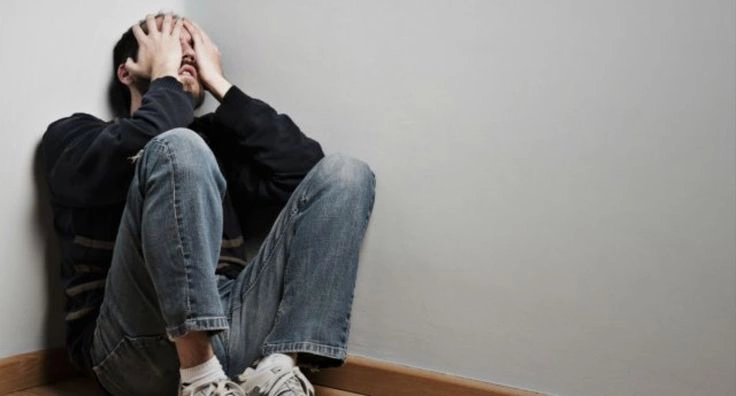
We live in a world where rest is seen as weakness, and pausing is failure.Where being available 24/7 is considered normal.But we are not machines. And silence, slowness, recovery — these are not luxuries. They are essential.

Burnout is not laziness. It’s overload.It’s waking up exhausted.It’s going through the motions with an empty heart.It’s when even good things no longer feel good.
We need to rethink this obsession with non-stop productivity.Sometimes real courage is not to keep going — but to stop.Not to push — but to say, “This is too much.”Not to aim higher — but to protect your well-being.
You don’t have to be “super.”Being human is enough.
Sometimes, we know exactly what to do — and still ask others. We hesitate, seek validation, delay the decision. Not because we don’t understand, but because we don’t trust ourselves. We doubt our feelings, thoughts, and instincts — as if someone else always knows better how to live our life.
Self-trust isn’t something we’re born with. It’s something shaped over time — and easily lost under pressure from expectations, criticism, or comparison. When you’ve been interrupted, corrected, or dismissed too often, you start to believe your inner voice isn’t enough. That someone else’s opinion holds more weight. So you start putting yourself on hold.
We grew up in a culture of external approval. From childhood, we were taught to focus on doing things “right”: how to look, speak, act. We learned to measure ourselves by the outside world, not by our own internal compass. And slowly, our inner voice became quieter than all the others.
But the truth is — you’re the only one living in your skin. Only you know how you sleep, who brings you peace, what drains you, and what brings you energy. Only you feel your body’s signals, your real yes and no, your limits. Trusting yourself isn’t about guessing what others want — it’s about listening to what’s already inside you.
Trust doesn’t mean you’re always right. It means you’re connected. It means hearing when something feels off — and not ignoring it. Feeling anxious — and not shaming yourself. Wanting rest — and honoring that. Feeling like you’ve reached your limit — and believing it. You don’t need permission to feel what you feel. You’re allowed already.
Self-trust doesn’t appear overnight. It’s not built through motivational quotes like “just believe in yourself.” It grows through practice: slowing down, tuning in, being honest. Asking not “what should I do?” but “what do I truly want?” And not judging the answer — even if it’s inconvenient, unexpected, or unlike everyone else’s.
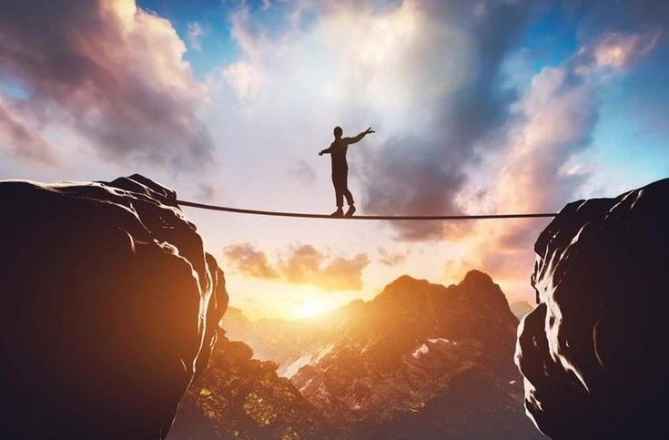
Every time you choose yourself, you build your foundation. Every time you follow your inner yes instead of outside noise, you carve your own path. Trust means supporting yourself, not pushing. Listening, not pressuring. Accepting, not comparing.
And one day, you’ll notice: you don’t need validation anymore. Not because you’ve become perfect — but because you’ve become real.
We live in a world where noise has become normal. Loud news feeds, constant notifications, background podcasts, music in our ears, endless messages, voice notes, video calls — we are always hearing something. Even when nothing is happening around us, our minds hum with thoughts, plans, memories, and worries. We've forgotten what it's like to simply be in silence.
Silence can be uncomfortable. It leaves no distractions. In silence, you hear what you usually avoid: yourself. Your thoughts, your emotions, your truth. That’s why we often run from it — filling every pause with sound, motion, or content. But that pause is exactly where healing begins.

Silence isn’t emptiness. It’s space — to breathe, to realign. In silence, thoughts settle, the body relaxes, the mind clears. Answers appear — ones the noise keeps buried. Silence doesn’t demand. It doesn’t sell, advise, compare, or compete. It simply exists. And in it, you’re allowed to exist, too.
In today’s world, silence feels like a luxury. We've forgotten that it's available. It doesn’t cost money. It doesn’t require a subscription. But it does require a decision. To turn off the phone. To pause. To go for a walk without headphones. To not scroll. To sit quietly. To just be with yourself.
You don’t have to be reachable 24/7. You don’t have to reply instantly. You don’t have to consume constantly. Sometimes the most important thing is to disconnect — just long enough to reconnect with yourself, with life, with others. Real connection doesn’t begin with messages — it begins with presence. And presence is born in silence.
We think recovery means vacation. But often, we don’t need a beach — we need peace inside our heads. And silence can become that space — the one where energy, focus, clarity, and meaning are slowly restored. Because in noise, we survive. But in silence — we live.
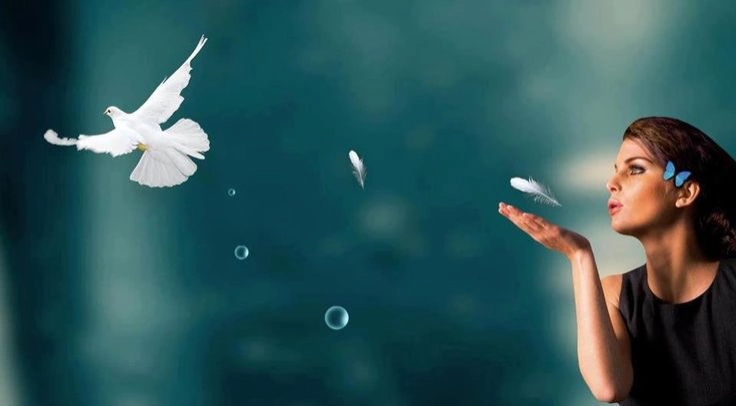
Silence doesn’t require hours. A few minutes is enough. Close your eyes. Take a breath. Listen not to music, but to stillness. If it feels uncomfortable at first — that’s okay. It just means you haven’t been alone with yourself for a while.
Let silence return to your life. Not as a rarity, but as a habit. In a world where everyone speaks — the real value belongs to those who can hear. And most often, it starts with hearing yourself.
“I don’t have time” — it’s the phrase we hear and say most often. No time for friends, for reading, for ourselves. We keep postponing things, blaming our busy schedules. But more often than not, the problem isn’t time — it’s where our attention goes.
We all have 24 hours in a day. But how much of that time do we truly live through? We dive into feeds, chats, endless notifications. We plan meetings but don’t arrive mentally. We’re present, but not engaged. Our minds are constantly in the future — or in someone else’s life. And suddenly the day is over, and we’re left with the feeling that it somehow slipped past us.
The digital era gave us a great gift — speed. We can talk, learn, order, and discover in seconds. But with that speed came a new pressure: to be everywhere, know everything, miss nothing. The noise of information steals not just our time — but the depth of our lives. We remember less, tire faster, and live in a rush.
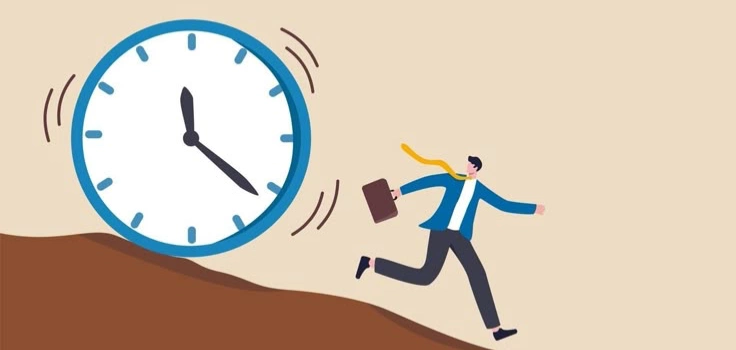
That’s why time has become the rarest and most precious currency. It doesn’t come back. You can’t buy it. You can only live it — or lose it. And the real question isn’t how to do more, but what’s truly worth your attention.
When you learn to guard your time, you start respecting yourself. Because choosing where to place your attention is a decision about who you want to be and what you’ll leave behind. You can give an hour to scrolling — or invest it in learning, silence, conversation, inspiration, or rest.
Sometimes all it takes is to pause. Do nothing. Not respond right away. Resist the automatic reaction. See the day not as a checklist, but as a chance to feel, to be present, to actually live it. Because productivity isn’t only about how much you do — it’s about how fully you show up.
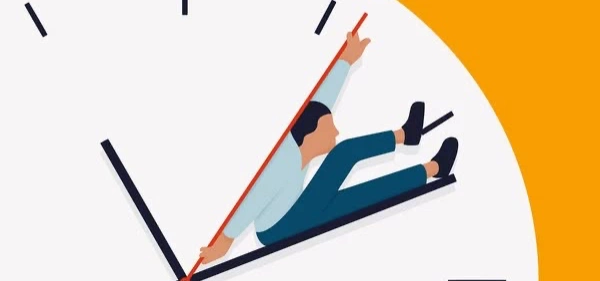
Your life isn’t what you plan — it’s what you pay attention to. And perhaps the most important skill today isn’t being faster, but being deeper.
We live in a world where noise has become the norm. News, notifications, comments, arguments, forecasts, comparisons, content — all at once, all the time. It’s hard to be alone with yourself, not because it’s boring — but because it’s unfamiliar. We've forgotten how to sit with silence. And even more — we fear it.
But silence isn’t emptiness. It’s not absence. It’s space. It’s in silence that clarity begins. In silence, you start to distinguish your own voice from all the others. You hear not just thoughts, but feelings. And that — goes deeper.
The world teaches us to be “on” 24/7. But no one taught us how to switch off. From connection, from pressure, from overload. We think silence is passive. That if you’re not speaking, you have nothing to say. That if you don’t respond immediately, you’re “gone.” But in truth — silence is restoration.

Silence is not withdrawal. It’s return. To yourself. To the present moment. To the understanding that you don’t have to rush, prove, or participate in everything. You’re not required to react to every headline. Not required to be a constant presence. You are allowed to pause.
Sometimes silence is a form of care. When you’re too tired to speak, but still want to be present. To simply be. To be real. Without filters. There’s deep relief in it: you don’t have to be inspiring, productive, impressive. You just exist. And that — is enough.
When you allow silence, subtle things begin to surface. You start noticing what used to fly past. A glance. A beam of light. A breath. A taste. Life gains depth. Slows down. Becomes real again. That’s the point: not to make noise about who you are — but to feel who you are.

We fear silence because there’s nothing to distract us. It shows us our raw self. Tired. Unsure. Lonely. But through that, a real meeting happens. No masks. No distractions. No noise. And you realize — you’re alive. Not perfect. Not polished. But present. And listening.
Silence isn’t empty because the world disappears.It’s full — because in that quiet, you return to yourself.And that is the most important thing you can ever hear.